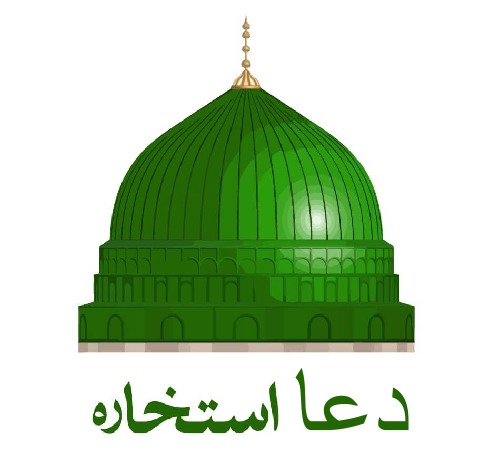Faith in Healing: Overcoming Kala Jadoo
How Does Faith Help in Overcoming Kala Jadoo? Faith overcomes kala jadoo by strengthening belief and trust in Allah, guiding you through kala jadu ka ilaj with Quran recitation, dua, and patience in healing. The Transformative Power of Faith Against Kala Jadoo Kala jadoo—the dark art of black magic—can feel like an invisible storm tearing through your life, causing unexplained illness, family rifts, financial ruin, or deep anxiety. Yet, Islam teaches that no harm can touch you without Allah’s permission, and faith is your unbreakable shield. This blog is for anyone battling kala jadoo or jadu tona, feeling lost, scared, or hopeless. You’re not alone. Through authentic kala jadu ka ilaj, rooted in belief, trust in Allah, and patience in healing, you can reclaim your peace, health, and spiritual strength. We’ll walk hand-in-hand through Islamic teachings, real stories, practical steps, and beginner-friendly tips. You’ll learn how to protect yourself, heal spiritually, and grow closer to Allah in the process. As He promises: “Indeed, with hardship comes ease” (Quran 94:5). Let’s begin your journey from fear to faith. What Is Kala Jadoo? Understanding the Reality in Islam Kala jadoo (black magic) is the use of jinn, spells, or forbidden rituals to harm others out of envy, revenge, or malice. The Quran confirms its existence: “And they followed what the devils recited during the reign of Solomon… teaching people magic and that which was revealed to the two angels at Babylon…” (Quran 2:102). The Prophet (PBUH) himself was affected by kala jadoo but was cured by divine revelation—proving it’s real, but never stronger than Allah. Common signs include sudden severe headaches, nightmares, family discord, business failure, or feeling “blocked” despite effort. But here’s the truth: kala jadoo only works if Allah allows it as a test. Your faith—your belief in His power and your trust in His plan—determines how quickly you rise above it. Hadith: The Prophet (PBUH) said, “The evil eye is real, and if anything were to overtake the divine decree, it would be the evil eye” (Sahih Muslim). This includes kala jadoo. How Faith Becomes Your Strongest Kala Jadu Ka Ilaj Faith isn’t just belief—it’s action, trust, and surrender. Here’s how it dismantles kala jadoo: Belief (Iman): Affirming La ilaha illallah reminds you that only Allah has power. Magic is illusion; Allah is reality. Trust in Allah (Tawakkul): When you say “Hasbunallahu wa ni’mal wakeel” (“Allah is sufficient for us”), you hand your fear to Him. Patience in Healing (Sabr): Kala jadu ka ilaj takes time. Symptoms may flare before fading—this is the magic losing grip. Stay patient. Dua & Ruqyah: Reciting Quran with conviction drives out jinn and breaks spells. Good Deeds: Charity, fasting, and salah build a spiritual fortress around you. Scholar Quote: Ibn Taymiyyah said, “The cure for sihr is stronger sihr—meaning the Quran and authentic supplications.” Case Study: Fatima’s Journey from Kala Jadoo to Complete Healing Fatima, a 28-year-old from London, woke up daily with crushing chest pain, heard whispers at night, and saw her marriage crumbling. Doctors found nothing. A relative confessed to using kala jadoo out of jealousy. Devastated, Fatima turned to an imam who taught her kala jadu ka ilaj through faith. She began: Reciting Surah Al-Baqarah daily (even via audio). Praying 2 rak’ahs of Istikhara every night. Saying morning/evening adhkār with full conviction. Giving sadaqah weekly to break the spell’s energy. For 40 days, symptoms worsened—classic resistance of jinn. But Fatima held onto trust in Allah and patience in healing. On day 41, the pain vanished. Her husband returned. Whispers stopped. Today, she runs a support group for kala jadoo victims, teaching that “faith is the real exorcism.” (278 words) Step-by-Step Kala Jadu Ka Ilaj with Faith Follow this beginner-friendly plan to overcome kala jadoo: Diagnose Spiritually: Consult a trustworthy raqi (not a fake baba). Confirm via ruqyah self-test (Listen Here). Strengthen Belief: Renew your shahadah 3x daily. Say: “I believe in Allah alone. No jinn or magic can harm me except by His will.” Morning & Evening Adhkar: Never skip—especially Ayat al-Kursi, Surah Al-Ikhlas, Al-Falaq, An-Nas (3x each). Recite Surah Al-Baqarah: Full recitation weekly or play audio at home. The Prophet (PBUH) said, “The devil flees from a house where Surah Al-Baqarah is recited” (Sahih Muslim). Ruqyah Bath: Recite over water, blow, and bathe 3x weekly. Dua for Protection: “A’udhu bi kalimatillahi tammati min sharri ma khalaq” (3x). Sadaqah & Fasting: Give charity in secret. Fast Mondays/Thursdays. Patience Journal: Write one thing you’re grateful for daily—builds sabr. Tip: Combine with medical treatment. Faith + medicine = complete kala jadu ka ilaj. Real-Life Examples of Faith Defeating Kala Jadoo Ahmed (Pakistan): Business collapsed due to jadu tona. Recited Surah Al-Jinn daily + gave sadaqah. Within 3 months, clients returned. Aisha (Canada): Infertility from kala jadoo. Did ruqyah + trusted Allah’s timing. Conceived after 7 months of sabr. Yusuf (UAE): Nightmares stopped after 40 days of morning adhkār and trust in Allah. Myths About Kala Jadoo & Kala Jadu Ka Ilaj (Busted!) Myth Truth You need taweez to cure kala jadoo Taweez with shirk is haram. Quran is enough. Only raqis can heal You can self-ruqyah with sincerity. Kala jadoo means weak faith It’s a test—even prophets were affected. Symptoms never return They may flare—stay patient. It’s the endgame. Quranic Proof: “And We send down of the Quran that which is healing and mercy for the believers…” (Quran 17:82) Beginner Tips to Build Faith & Fight Kala Jadoo Start Small: Recite last 3 surahs 3x after every salah. Use Apps: “Ruqyah Shariah” or “Hisnul Muslim” for audio adhkār. Avoid Panic: Fear feeds jinn. Replace with “La hawla wa la quwwata illa billah.” Cut Sin: Music, gossip, riba weaken your shield. Sleep in Wudu: Jinn hate purity. Seek Support: Join Kala Jadoo Support Group for daily motivation. Hadith: “Make use of medical treatment, for Allah has not made a disease without appointing a remedy for it…” (Abu Dawud) — includes kala jadu ka ilaj. H3: Best Tools for Kala Jadu










